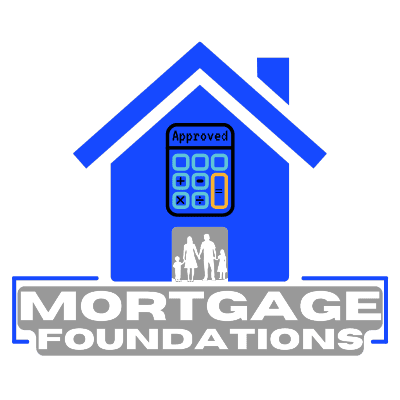Episode # 9 of the Mortgage Foundations Podcast
Mortgage renewals are a reality of most mortgages and is an important step in managing your finances; the importance of paying attention to them should definitely not be overlooked; however, this happens far too often. To start off, let's clarify what a mortgage renewal actually means. When you first took out your mortgage, you agreed to certain terms and conditions, including the length of your mortgage term. This term typically lasts for a period of 1 to 5 years, during which time you make regular mortgage payments. However, once your term is coming to an end, you have the option to renew your mortgage with your current lender or consider switching to a new lender if that makes more sense. Now, you might be wondering why you would consider switching lenders when your term ends. Well, there are a few reasons for this. Firstly, shopping around for a new mortgage can allow you to potentially secure a lower interest rate; you might be able to save a substantial amount of money by switching to a new lender with a lower rate. Secondly, you might be interested in changing your mortgage terms or exploring different options that better suit your current financial goals. Many lenders may allow you to adjust your amortization while switching the mortgage over to them; this could either save you extra money by lowering the amortization; or you may be able to increase cash flow by extending the amortization back out. This is a great opportunity to reassess your needs and make any necessary adjustments. The first step in the renewal process is to review the options presented by your current lender; they will provide you with a renewal offer, which outlines the new terms and conditions they have available for you. It's crucial to carefully review this offer and compare it to other available options in the market. This is where a Mortgage Broker comes in handy during the renewal process. Remember, the goal is to secure the best possible terms, features and interest rate for your mortgage; they have access to many different lenders and can compare the rates and required mortgage features on your behalf. It should be noted that renewal offers can go a couple of ways; one is that your current lender sends the renewal notice with higher rates in the hopes that the ease of being able to sign the renewal offer while assuming they are giving you their best offer is preferred. On the other hand; your lender may be offering very competitive retention rates in order to be proactive and keep your business. A Mortgage Broker will be able to highlight this quickly with you and see if it is beneficial to switch or just stay where you are. When it comes to renewing your mortgage, it's essential to start the process well in advance of your current term's expiry date. This will give you enough time to explore your options, gather necessary documents, and ensure a smooth transition while being prepared for when your lender presents their offer. Roughly four to six months before your term ends is a good timeframe to begin preparing for your renewal process. With that being said, your lender may delay the renewal notice being sent out until as little as 30 days before renewal; even if your renewal is close and depending on the options with the current lender, a switch may be able to still take place, even in a time crunch. If you choose to remain with your current lender; the renewal process may be quite simple; in many cases you make your choice on the renewal document, sign and return it; or communicate with your lender in whichever way they prefer. After the renewal date has passed, you will then switch to the new terms and payment with that lender. On the other hand; if you decide to switch your mortgage to a new lender; it's time to gather the necessary documents. Your broker will provide you with a list of documents required for the switch process. This typically includes recent pay stubs, employment letters, other relevant financial information and property documentation. There may also be an appraisal of your property required for the new lender to ensure the value is in line with what is expected. The switch process is more involved and may feature fees that the straight renewal doesn't; however, you may find that the savings far outweigh the cost. It is important that your broker calculates your savings and ensures that you actually will be farther ahead and saving money with the new mortgage when all fees and costs are included. In summary, the mortgage renewal process involves carefully reviewing your renewal offer and comparing it with other options available to you to ensure that the mortgage still aligns with your financial goals; a process that is made easier with the help of a Mortgage Broker. It is recommended not to take the easy route and 'just sign' the renewal notice since you may not be offered the best rate and options that are available. The consultation with Mortgage Foundations and review of your options is no cost to you and in many cases their services are paid for by the lender; so, you really do have nothing to lose in the process. Remember, renewing your mortgage is an opportunity to reassess your needs and potentially secure better terms. Mortgage Foundations can help you understand the process and assist in exploring your options, so you can make informed decisions that align with your financial goals.

